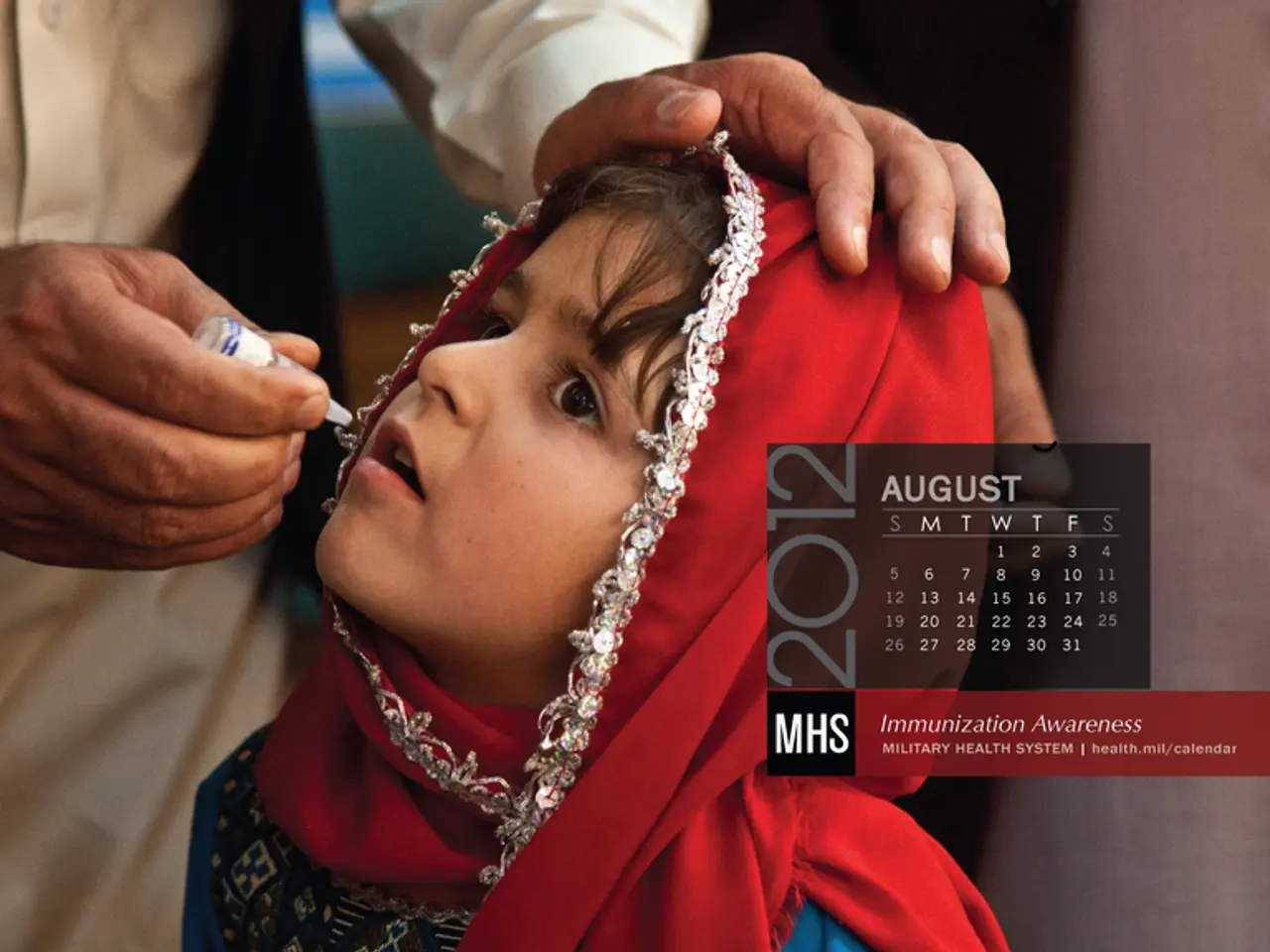Relaxed Vaccination Rules Lead to Increased Health Risks for Children Across Various States
In the United States, a growing number of nonmedical vaccine exemptions among children are causing concern for health officials and medical organizations. This trend, which has seen a significant increase in recent years, is leading to declining vaccination rates and posing a risk to community immunity.
Dr. John Gaudet, a pediatrician in Mississippi, fears that the ongoing controversy surrounding the COVID-19 vaccine could spill into the nation's ongoing childhood vaccine debate. His concerns are not unfounded, as some lawmakers across the country are working to relax vaccine requirements for diseases like measles, polio, and meningitis.
Louisiana Republican state Rep. Kathy Edmonston has sponsored legislation that requires schools to provide parents with information about vaccine exemptions. In contrast, West Virginia Republican Gov. Jim Justice vetoed legislation that would have allowed full-time virtual public school students and private/parochial schools to avoid mandatory vaccine requirements.
The exemption rate among kindergartners reached a record high of about 4.1% in the 2024-2025 school year, up from 3.7% the previous year. This increase is mostly driven by parents withholding vaccines for nonmedical reasons. In some states like Idaho, exemption rates are as high as 15.4%, while in others such as Connecticut, it remains below 0.5%.
Correspondingly, vaccination coverage has slightly declined. For example, the measles-mumps-rubella (MMR) vaccination rate dropped to 92.5%, below the 95% threshold generally needed to maintain herd immunity and prevent outbreaks. This decrease in vaccination rates and rise in exemption rates have been linked to recent disease outbreaks, including the worst U.S. measles spread in over three decades, with more than 1,300 cases reported in 2025 so far.
Public health authorities, including the American Academy of Pediatrics (AAP) and CDC, emphasize that requiring vaccination for school entry protects not only vaccinated individuals but also those who cannot be vaccinated due to medical reasons. The AAP has called for ending all nonmedical vaccine exemptions to enhance community immunity and reduce risks to vulnerable populations.
The opposition to vaccine mandates goes back more than a century to the early 1900s, shortly after the U.S. Supreme Court ruled that states could require parents to vaccinate their children. However, nonmedical exemptions account for more than 90% of all approved vaccination exemptions and are allowed in all but five states.
The debate to relax vaccine requirements or create broader exemptions is not tied to vaccines themselves, but to what conservatives call an overreach of government. This sentiment is reflected in laws like Tennessee's, which prohibits the state from requiring immunizations as a condition of adoption or foster care if the family taking in a child has a religious or moral objection to vaccines.
In Mississippi, the state is approaching the approval of more than 2,800 religious exemptions for vaccinations. Despite not having reported any measles cases so far this year, the state's low vaccination rates could put it at risk for outbreaks.
As the number of nonmedical vaccine exemptions continues to rise, public health officials and medical organizations are urging states to tighten exemption policies to protect community immunity and prevent outbreaks of preventable diseases.
[1] Centers for Disease Control and Prevention. (2021). Vaccine Exemptions by State. Retrieved from https://www.cdc.gov/vaccines/vpd/mmr/public/exemptions-by-state.html [2] Centers for Disease Control and Prevention. (2021). Measles Cases and Outbreaks. Retrieved from https://www.cdc.gov/measles/cases-outbreaks.html [3] National Conference of State Legislatures. (2021). State Vaccine Requirements for School Entry. Retrieved from https://www.ncsl.org/research/health/state-vaccine-requirements-for-school-entry.aspx [4] American Academy of Pediatrics. (2021). Vaccine Exemptions. Retrieved from https://www.aap.org/en-us/advocacy-and-policy/aap-priority-issues/pages/vaccine-exemptions.aspx [5] Centers for Disease Control and Prevention. (2021). National, Regional, and State Vaccination Coverage Among Children Aged 19–35 Months — United States, 2022. Retrieved from https://www.cdc.gov/mmwr/volumes/71/wr/mm7102a1.htm?s_cid=mm7102a1_w
The ongoing controversy over COVID-19 vaccines could potentially have a spillover effect on the nation's childhood vaccine debate, as some lawmakers are considering relaxing requirements for diseases like measles and polio. This shift in policy could pose a risk to community immunity, especially considering the health-and-wellness implications for mental-health vulnerable populations, as proper vaccination rates are crucial in preventing disease outbreaks, such as the recent increase in measles cases across the United States.
Public health officials and medical organizations, such as the American Academy of Pediatrics and the Centers for Disease Control and Prevention, are urging states to tighten exemption policies and emphasize the importance of science-backed medicine in maintaining community health-and-wellness and mitigating the spread of medical-conditions like measles.




